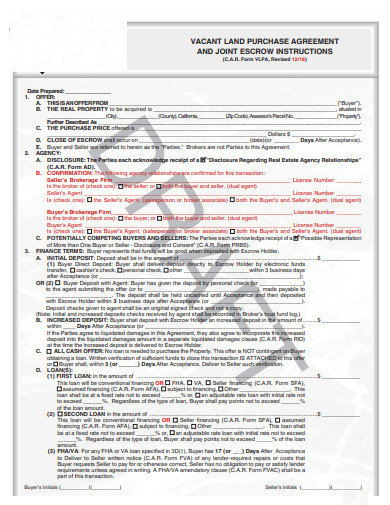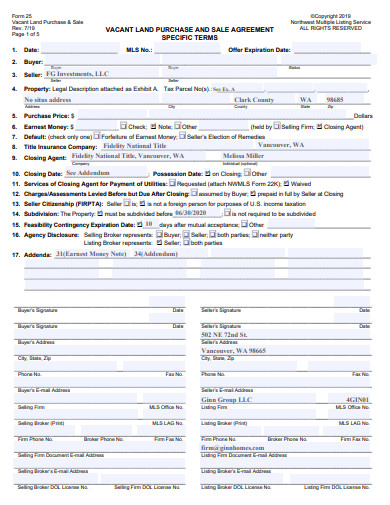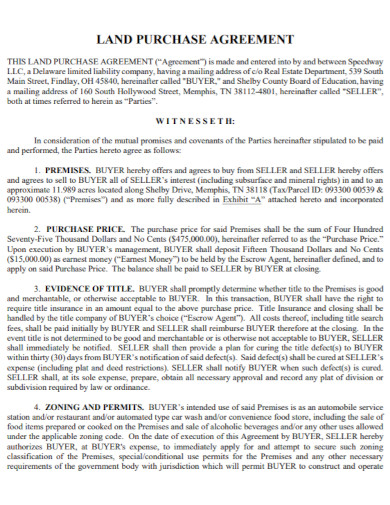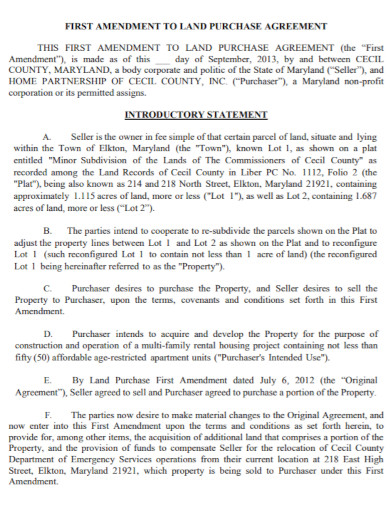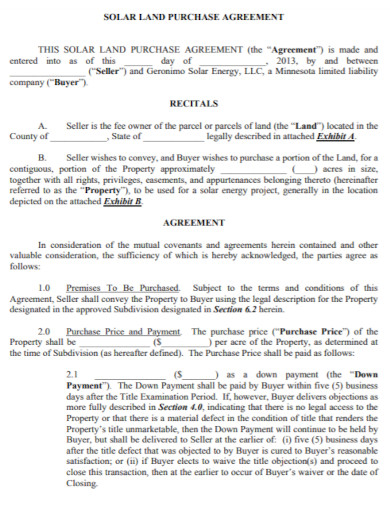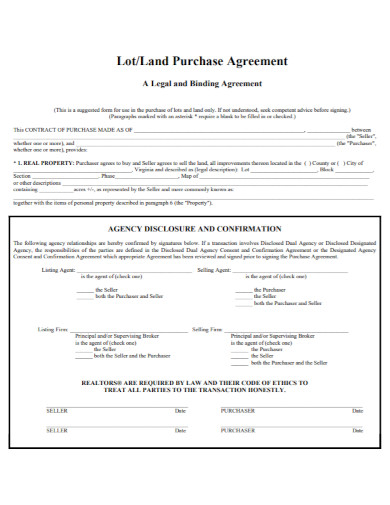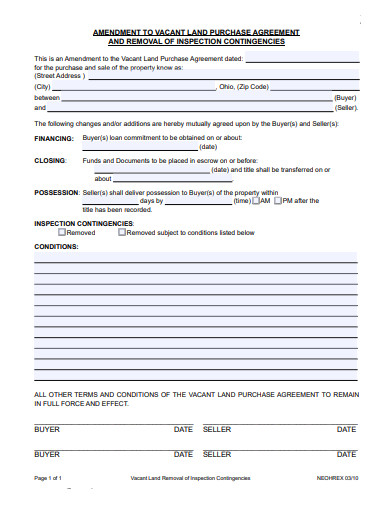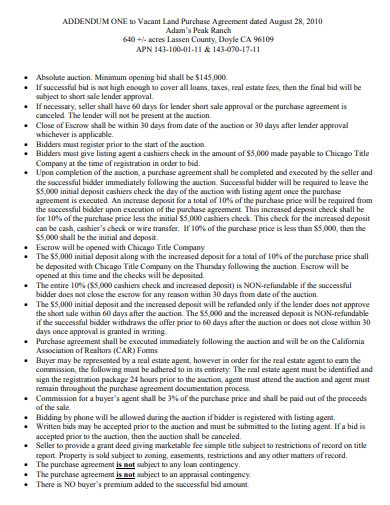10+ Land Purchase Agreement Examples
Purchasing land to use either for farm, agricultural or to build a new company has a long process to go through. Some would think it is easier to purchase land from private owners than that of the government. It actually depends on who you purchase it from and how large or little the land you want to purchase. For private owners who plan on selling out their land for potential farmers or companies, there are some things you need to consider before doing so. Of course there are a list of things to take notice of and to be agreed on. For tenants or potential buyers, you would need to sign a land purchase agreement from the person you are planning on buying land from. How does this work you ask? Check out the article below for more.
10+ Land Purchase Agreement Examples
1. Land Purchase Agreement Template
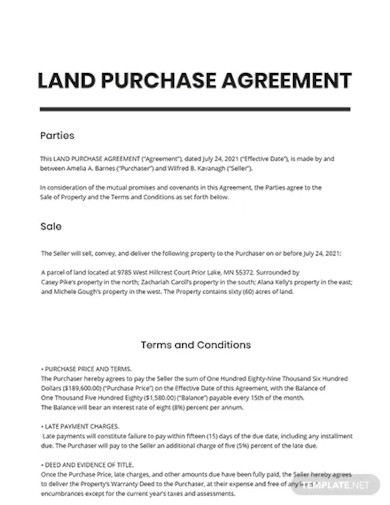
2. Farm Land Purchase Agreement Template
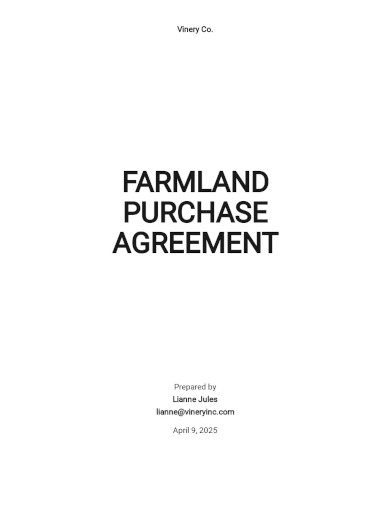
3. Commercial Land Purchase Agreement Template
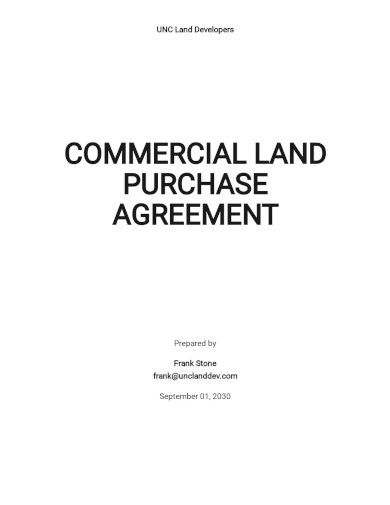
4. Draft Land Purchase Agreement
5. Land Purchase and Sale Agreement
6. Company Land Purchase Agreement
7. First Amendment to Land Purchase Agreement
8. Solar Land Purchase Agreement
9. Land Purchase Binding Agreement
10. Basic Land Purchase Agreement
11. Vacant Land Purchase Agreement Template
What Is a Land Purchase Agreement?
A land purchase agreement isa kind of documented form that lets potential buyers sign. In a way, this agreement form consists of the necessary information that is needed for them to agree and sign when purchasing land from the owner. This purchase agreement consists of the details that would later be discussed with the potential buyer and the seller in the form of the agreement. In addition to that, this document is also legally binding. The purchase agreement covers basically the rules, regulations, terms and agreements on how the land may be used and if the purchase is only for temporary or permanent use. As those who are planning on buying land understand that what has been discussed with the buyer and the seller must be followed. Regardless of what they may be planning on doing to the land once it has been purchased. Usually, the buyer is given a tour of the land and explained by the seller about it in the hopes of the buyer to agree on purchasing it. Basically in the form of real estate.
The purpose of writing out a land purchase agreement is to make sure that everything being discussed and written down is true to both parties’ knowledge. That anything that may be false would cancel the agreement. The agreement is also used as a way to prove that both parties have signed and agreed on the conditions that concern the land they plan on purchasing.
How to Write a Land Purchase Agreement?
You might be wondering by now how to write a clear and concise way of a land purchase agreement. Is there even a way to possibly write down an agreement that would benefit both parties and not just one? Yes, there is and to be able to do that, you must at least look at the following tips listed below. The next time you are planning on selling or you are planning on buying a piece of land, and you want to know how they write the land purchase agreement, you should remember the tips you have read below.
1. Buyer’s Complete Name
Get to know your potential buyer. When you are planning on writing out the land purchase agreement, you would need the buyer’s complete name. Get to know your buyer before you plan on selling them some of your land. Since even if you may have the purchase agreement as back up, this kind of dealership still has its risks.
2. Terms and Conditions
Your terms and conditions on your agreement should be stated and clear. Your buyer would be curious or would be asking you questions about your conditions for selling the land. No right buyer would buy the land if they do not see the terms and conditions in the agreement. The terms and conditions help the buyer understand what the land is about, and any other information concerning it.
3. Price and Payment
The price and the payment should be discussed between you and your buyer. State a price range that may be suitable for you and ask the buyer about it. Discussions of price and payment should be between the two of you. In order for you to settle on an agreement and how long and how they are going to be paying.
4. Buyer and Seller Signatures
You and the buyer’s signature must be found below the agreement. This is to certify that you and the buyer have agreed on the details of your agreement and have come up with the common ground or common solution. Your signature and the buyer’s signature must also be placed with the date of the agreement.
5. Make Copies
Make a copy for yourself and that for your buyer. Your buyer has the right to own a copy of the purchase agreement. This would be used as proof that they have purchased the land from you, the owner.
FAQs
What is a land purchase agreement?
A kind of legal document that serves as proof for the buyer that they have purchased land from the seller. A document that also contains the information about the land they are buying.
What purpose is there to write a land purchase agreement?
The purpose of writing a land purchase agreement is to make sure that the land has been legally bought from the owner. It also shows that the information had been agreed by both parties prior to buying or selling the land.
What is something that should be avoided when discussing the terms for the land purchase agreement?
Avoid using jargon that is unfamiliar to your buyer. Avoid having to insist that your way is better. When discussing the agreement, you and your buyer must agree to some points or to find a common ground to agree on that can also be found in the agreement.
Selling or buying land is sometimes a little tricky. You are not sure if the land you are buying is worth the price you paid for, nor if the person you are selling your land to can be trusted. Of course there are risks for both parties when it comes to buying or selling land. To avoid risks that may be involved, it is always best to expect a land purchase agreement. This agreement can help both the buyer and the seller in terms of looking for a common ground to agree on.


![10+ Land Purchase Agreement Examples [ Farm, Agricultural, Company ]](https://images.examples.com/wp-content/uploads/2021/09/10-Land-Purchase-Agreement-Examples-Farm-Agricultural-Company-.jpg)
